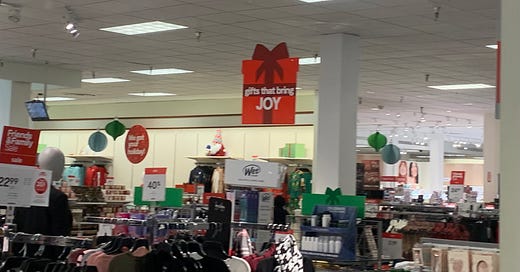Parallels between elections and Christmas shopping offer hope
In the spirit of Christmas, voters and elected leaders should commit to understanding each other, focusing on common goals and working together
By the time results of the final 2022 political races were announced, many people had shifted their attention to Christmas shopping. While looking for gifts with my wife Thanksgiving week it occurred to me that gift shopping and elections have several things in common and that examining those similarities could help us identify ways to reduce polarization and make government more effective.
Key similarities include:
We don’t always get what we want
I don’t enjoy buying gifts. I’m happy to spend money on people who are close to me, but I often find it difficult to pick the right gift. Usually, that’s for one of two reasons: Either I don’t know enough about what they want, or I focus too much on what I think they need (this was a particular temptation when my sons were younger).
Elected leaders face each of these problems. They almost never know enough about what constituents want and they frequently default to what they want – or more specifically what their most influential supporters (usually a small minority of constituents) want.
The disconnect is not entirely the fault of government. Too few voters utilize the various types of constituent communications opportunities (from town hall meetings to comments submitted through office-holders’ websites). Too many – though still a small minority – voters view social media trolling as an effective means of communication.
Honest, even-handed communications would improve the political process. But, even then, we all need to accept that it’s not possible for anyone, whether a gift buyer or an elected official, to please everyone. We should remember some of the best advice ever offered in a song, courtesy of the Rolling Stones:
You can’t always get what you want, but if you try sometimes you’ll find you get what you need.
Getting what we ask for doesn’t guarantee a happy result.
Can you remember a gift you really wanted, perhaps because of effective advertising or because someone you knew had one, only to find out that the product was much less enjoyable/useful than you expected? Most of us have had that experience with Christmas presents. Probably all of us have had that experience with candidates we supported.
While it’s tempting to blame candidates for misleading political ads and companies for deceptive advertising campaigns, I blame voters and consumers. Knowing what you’re selecting (whether it’s a product or a candidate) requires a lot of research beyond watching ads and/or talking to two or three friends. It also requires introspection to determine what you really want. Too few voters and shoppers invest the time necessary to make informed decisions.
We should focus on something bigger than our wants and needs.
My biggest problem with Christmas shopping is that it distracts from the true meaning of Christmas. As a person of faith, I find that meaning in the birth and life of Jesus. But even for those who practice another faith, or no faith, Christmas stands for more than the exchange of commercial products. It’s a time of togetherness, hope and celebration.
Likewise, elections should be about more than getting what we want. Dare I say, they should be about togetherness – or at least about electing people who are committed to helping us all live together in ways that everyone can celebrate. Yes, that’s a difficult goal. But we shouldn’t give up on it, just like I don’t give up on buying Christmas presents because it’s difficult.
Mark Hester is a retired journalist who worked 20 years at The Oregonian as a business editor, sports editor and editorial writer.




